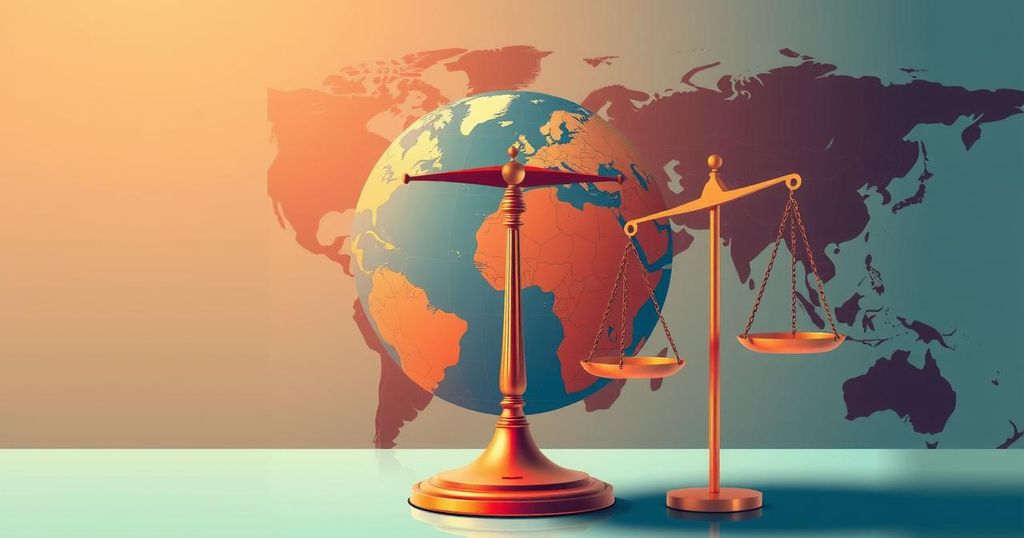World news
ASIA, BLOOMBERG, BLOOMBERG NEWS, BRIAN HUGHES, CONTRIBUTOR, DONALD TRUMP, DUBOWITZ, EUROPE, EUROPE/ASIA, FOREIGN POLICY, GETTY, GETTY IMAGES, IRAN, J. D. VANCE, KYIV, MARK DUBOWITZ, MOSCOW, NUCLEAR POLICY, NUCLEAR WEAPONS, OVAL OFFICE, PUTIN, RUSSIA, RUSSIA-UKRAINE WAR, TRUMP, UKRAINE, VANCE, VLADIMIR PUTIN, VOL, VOLODYMYR ZELENSKY, WAR, WESTERN SANCTIONS
Fatima Khan
0 Comments
Concerns Regarding Russia’s Role in U.S.-Iran Nuclear Negotiations
Security experts express concern about Russia’s proposed role as a mediator in U.S.-Iran nuclear talks, questioning the credibility of Russian involvement given its close relationship with Iran. The Trump administration is optimistic about utilizing Russia to bring Iran to the negotiating table, but skepticism exists due to previous destabilizing actions supported by Russia and the complexities surrounding Iran’s advancing nuclear program.
Security experts have expressed concerns regarding reports of Russia’s potential role as a mediator in U.S.-Iran nuclear discussions. A recent Bloomberg News report suggested that the Trump administration is considering utilizing Russia in negotiations with Iran on its nuclear program, aiming to address the influence of Iranian proxies as well. This development raises various questions regarding the efficacy and motivations of such mediation, particularly given Russia’s close ties with Tehran.
Key concerns revolve around the credibility of Russian President Vladimir Putin in advocating for U.S. positions when negotiating with Iran. Experts like Mark Dubowitz from the Foundation for Defense of Democracies argue that Trump seems to perceive Russia as a partner rather than an adversary. Dubowitz suggests that Trump appears optimistic that Russia could assist in persuading Iran to dismantle its nuclear infrastructure while facing pressure from the U.S. and Israel.
Despite Trump’s optimism, other analysts caution against relying on Russia’s potential collaboration. Jonathan Lord from the Center for a New American Security emphasizes that trusting Russia to mediate a nuclear agreement seems illogical given its partnerships with Iran. He points out the mutually beneficial support that exists between Iran and Russia, especially considering Russia’s involvement in Iran’s regional destabilization efforts and its actions in Ukraine.
National Security Council spokesperson Brian Hughes reiterated the administration’s commitment to discussing U.S. concerns with Iran from a position of strength. He highlighted Trump’s renewed focus on preventing Iran from acquiring nuclear weapons through a policy of maximum pressure. However, what remains unclear is the ultimate strategy Trump intends to pursue regarding Iran, as he has exhibited mixed signals about his approach.
The lack of clarity regarding Russia’s proposed mediation role and Trump’s strategy contributes to uncertainty about the likelihood of progress in nuclear negotiations. David Makovsky from The Washington Institute for Near East Policy underscores the necessity of understanding the true nature of what Russia would offer in these discussions. The ongoing acceleration of Iran’s nuclear program further complicates any diplomatic efforts, as Iran continues to enrich uranium significantly.
Although Israeli Prime Minister Benjamin Netanyahu has expressed support for Trump’s initiative to negotiate with Iran, Israeli leadership has not commented on Russia’s involvement in these discussions. As talks with the Biden administration have stagnated, experts continue to advocate for vigilance regarding Iran’s actions and the potential implications of Russian mediation.
In summary, the prospect of Russia mediating U.S.-Iran nuclear talks raises significant concerns among security experts. While the Trump administration views this engagement optimistically, skepticism prevails due to Russia’s close relationship with Iran and its previous actions in the region. The unclear motives behind Russia’s involvement and the ongoing progression of Iran’s nuclear capabilities complicate the situation further, leaving questions regarding the efficacy and potential outcomes of such negotiations. Thus, careful scrutiny of Russia’s role and Iran’s actions remains critical as discussions progress.
Original Source: jewishinsider.com




Post Comment